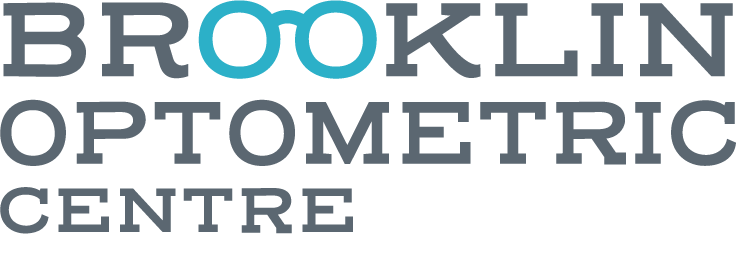eye exams are vital to eye health
The optometrists at Brooklin Optometric Centre believe that comprehensive eye exams are vital to preserving vision and maintaining eye health. Since an eye exam involves more than just finding your eyeglass prescription, you can expect them to use numerous techniques to assess your eye health. These techniques will be modified to accommodate the needs and abilities of our special patient populations (infants, children, seniors and special needs patients).
Case history
You will be asked about your general health, medications you may be taking, your working environment, hobbies, etc. and also to describe any vision problems you may have been experiencing.
Visual acuity tests
Using wall and hand-held charts, your ability to see small details clearly at both near and far distances will be assessed. The standard eye chart utilizes letters, but numbers, pictures or symbols can be used for children or other special needs patients.
Retinoscopy
An optometrist can determine the strength of your eyes using various lenses and a retinoscope. This is done without feedback from the patient and is therefore an invaluable instrument for assessing the vision problems of children and others who may not be able to read an eye chart.
Refraction
This test is performed to determine your exact prescription. An instrument called a phoropter is used. A phoropter contains a combination of lenses, and lens choices are systematically changed until clear focus is obtained.
Tonometry
A tonometer is used to measure the fluid pressure in the eye and is an important test in detecting glaucoma.
External eye examination
The external area around the eye will be examined to ensure that there are no abnormalities. A special microscope called a slit lamp is used to provide high magnification. This instrument is also used to examine the cornea, iris, lens and anterior chamber of your eye. When examining your eyes, specific eye drops might be used to detect tiny cuts, scrapes, tears, foreign objects or infections on your cornea.
Internal eye examination
Using an ophthalmoscope, slit lamp and special lenses, the back of your eye, including your retina, optic disc and other internal structures will be examined.
At the Brooklin Optometric Centre, a high resolution digital retinal imaging system is used to capture a baseline image of your retina. The images will be used to monitor any changes that may occur with age or disease progression. This is especially important in diabetic and hypertensive patients, as well as patients with macular degeneration and glaucoma.
Eye Movement
Using a number of different tests, your eye alignment and co-ordination will be assessed. Eye muscle imbalances can lead to eye strain, fatigue or double vision.
Peripheral Vision
Your visual field is the area in front of you that you can see without moving your eyes. The visual field test determines whether you have defects in your peripheral vision. Your peripheral vision may be affected by glaucoma, a stroke, brain tumours or other conditions.
Colour Vision
Approximately 8% of males and 0.4% of females have colour vision deficiencies. The Ishihara colour vision test or a D-15 arrangement test can be used to assess the presence and extent of colour vision deficiencies.
Stereopsis
Your depth perception will be evaluated with polarized lenses and various 3-D images.
Contact
⚑ LOCATION
5959 Anderson St.
Brooklin ON, L1M 2E9
☎ phone
905-655-6200
➤ HOURS
Monday-Thursday 10 am-6 pm
Friday 9 am-4 pm
PREPARING FOR YOUR APPOINTMENT
In an effort to maintain a healthy environment, we ask that if you are sick (which includes a cold, a fever, the flu, etc.) or have the onset of symptoms of an illness that you reschedule your appointment. If you arrive for your appointment with symptoms of an illness, you will be asked to reschedule your appointment. This is for your well-being as well as the health of our patients and employees. Our office services many patients who are elderly and/or immunocompromised and we are doing our best to reduce the spread of communicable illness.
If you do need to cancel your appointment, please call us as soon as possible and we will be happy to reschedule your appointment for a time when you are feeling better.
If you are having an ocular emergency, and are also feeling unwell with systemic illness, please call our office and we will triage you to the appropriate care, which may include asking you to wear a mask while in our office.
WHAT SHOULD I BRING TO MY EYE EXAM?
Your current glasses, sunglasses, or contact lenses (if you wear them)
A list of your current medications, supplements, and any eyedrops you use
Appropriate health card and/or insurance information
Knowledge of family history.
To save time, and contact points in the office, please complete this health questionnaire, COVID-19 screening, and insurance information prior to your appointment. The information on this link is sent directly to our office and can be completed on your phone, computer or tablet. There is no need to download or print off any forms.The name of your primary care doctor
Your planner or digital calendar to make note of your next appointment

